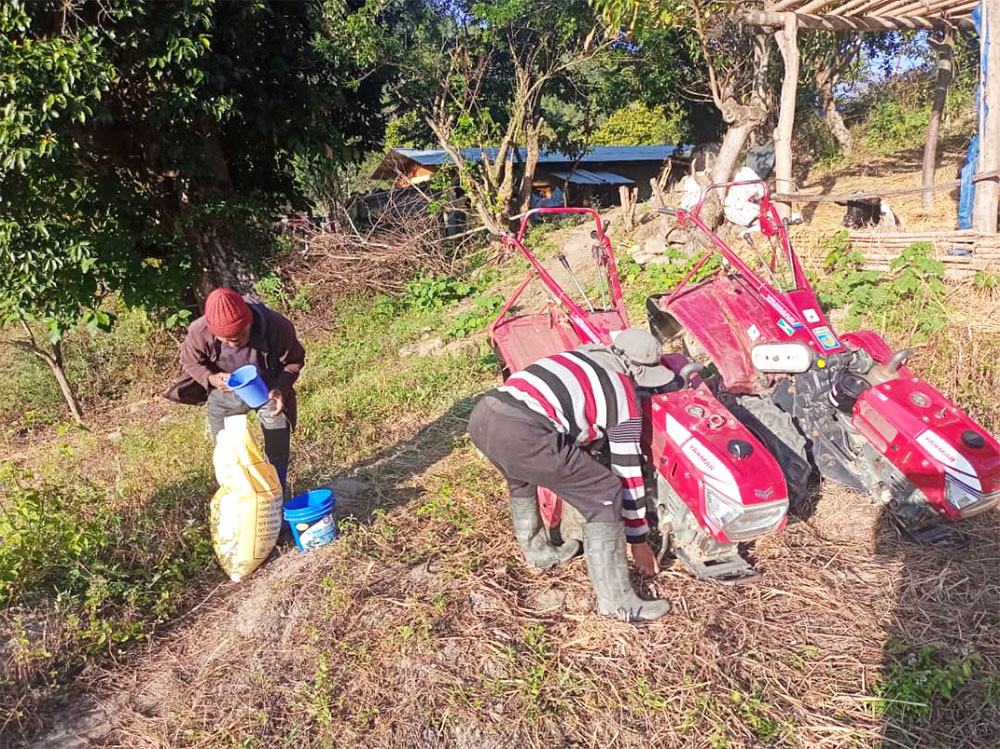Sherab Lhamo
A recent report by the Competition and Consumer Affairs Authority (CCAA) has raised concerns over the reliability and durability of power tiller spare parts, citing significant challenges with quality standards.
The report highlights that while the Agriculture Machinery and Technology Centre (AMTC) has established quality standards for specific spare parts, such as plough shares and rotary blades, compliance with these standards remains voluntary.
AMTC does, however, issue provisional certificates for parts that meet its criteria.
The report highlights the need to expand the scope and frequency of quality testing for a wider range of power tiller components, acknowledging that immediate enforcement of compliance may not be feasible. It recommends issuing certificates of quality or fitness to promote transparency and help buyers make informed decisions.
Through this evaluation, the CCAA seeks to assess the reliability and effectiveness of Bhutan’s power tiller spare parts supply chain, identify gaps, and propose measures to improve its efficiency and sustainability.
The CCAA has recommended increasing consumer awareness about the quality and value for money of machinery and spare parts, which could encourage dealers to source higher-quality products. “This would incentivize businesses to improve their offerings to remain competitive and capture a larger share of the market,” the report noted.
Another critical issue highlighted is the geographical isolation of many rural farming communities from urban centres, where spare parts dealers are primarily located. This distance results in delays and higher costs in obtaining necessary parts.
According to the report, 30 percent of dealers reported delivery times exceeding two weeks, causing extended downtimes for farmers and increasing operational costs. Half of these dealers had to offer compensation for delayed deliveries.
For dealers who do not stock parts but are willing to source them upon request, customers required 20 percent advance payments. Of these, 50 percent asked for payments ranging from 21–50 percent of the total cost, while the remaining 50 percent demanded substantial advances of 51–100 percent. This practice of requiring significant upfront payments risks deterring farmers, especially those with limited cash flow, from obtaining essential parts.
The government established Farm Machinery Corporation Limited (FMCL) to address the supply chain issues in remote areas. The report suggested that to improve the supply chain efficiency, the government could offer tax incentives or credits to private firms willing to expand their inventories or establish outlets in rural areas.
And Government-backed loans with favorable terms which could help these businesses manage inventory costs or cash flow issues, allowing them to keep higher stock levels without affecting day-to-day operations.
The report suggested the need for intervention to strengthen both public and private sector roles in improving availability, affordability, and reliability of machinery and spare parts. As private businesses are hesitant to invest in areas with low demand for machinery and spare parts.
CCAA has carried out surveys to 10 dealers out of 14 authorised power tiller distributors based on the dealers who responded, in Thimphu and Paro including FMCL.
The survey revealed a significant disparity in distribution of dealers, with 57 percent of the dealers operating without any branch offices within the country, only a single company operated 10 branch offices across the country.
This uneven distribution, with a concentration of dealers in western regions could impact the speed and quality of service delivery in other parts of the country.


